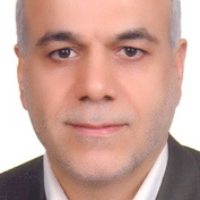A Model for Faculty Members Development based on FAVA
Recently there have been a focus on the development of faculty members with the aim of meeting the challenging needs of society, university, faculty members and students. In this regard, technology includes the potential to create new opportunities in this field. The current research was conducted with the purpose of identifying the elements and designing a model for the development programs for faculty members based on FAVA. The research method was applied and with the approach of qualitative data collection and analysis, which was done with the comparative, inductive, and qualitative content analysis method. The method involved semi-structured interviews with 20 experts in the field of education and technology with a snowball method until theoretical saturation was reached. According to the findings 6 main concepts and 42 subcategories were extracted. The research results emphasize the design of the 6 elements of goal, content, time, space, interactions and evaluation, considering the capacities and challenges of adding FAVA to these elements. Finally, a pattern of programs was presented based on FAVA for developing the capacities of faculty members. In addition, some recommendations were offered based on the findings of the study such as designing an integrated system including various educational and research systems based on individual and organizational needs; active, experimental, personalization, informal and transferable approaches in a safe environment in accordance with the rules; considering simulation of face-to-face situations in a flexible and optimal time with active interaction of the audience, instructor and content with a clear and selective approach along with a growing and valid assessment.
-
A future-oriented analysis of the driving forces of primary school curriculum and their implications
Elhām Yousefi Hamedāni *, Ahmadrezā Nasr Isfahāni, Yāsamin Ābedini, Mohsen Tāheri Demne
Quarterly Journal of Educational Innovations, -
Favorable Indices for Assessing The Performance of University Students in The Humanities Fields and The Amount of Attention They Receive
Mostafa Bagherianfar *, Ahmadreza Nasresfahani, Mohamad Javadipour, Asghar Zamani
Quarterly Journal of New Thoughts on Education,


